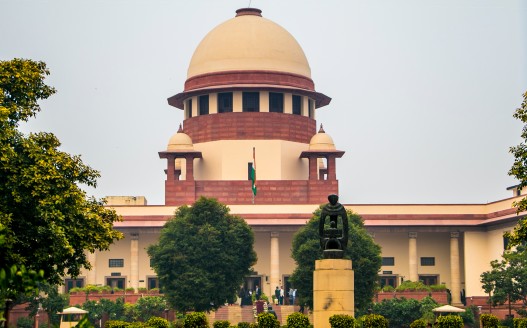The Supreme Court has turned down the Board of Control for Cricket in India (BCCI)’s plea that those office-bearers who have been sentenced to imprisonment for three years and above should be debarred from holding any post in the national body, but approved in principle that henceforth those who are convicted by a court of law would stand disqualified from holding any post.
The apex court allowed the BCCI office-bearers to hold posts in other sports organisations like football, volleyball, hockey, etc. which was earlier barred under the recommendations of the Justice R.M. Lodha panel and was approved by a two-judge bench of Justice T.S.Thakur and Justice Ibrahim Kalifullah (both since retired) in 2015.
A bench of Justice D.Y. Chandrachud and Justice Hima Kohli passed the order on Wednesday modifying the earlier conditions imposed by the court in 2015, following the BCCI’s plea for amending the earlier provisions in the amended constitution placed before the top court. However, a formal copy of the written judgment was uploaded only on Thursday night.
Besides the above two amendments, the apex court had agreed to modify the earlier rule that an office-bearer has to enter a three-year cooling-off period after serving office for two consecutive terms of three years in the state association and another three years in the BCCI.
Clause 6(4) of the existing constitution contains the stipulation that an office-bearer who has held any post for two consecutive terms either in a state association or in the BCCI or a combination of both shall not be eligible to contest any further election without completing a cooling-off period of three years. During the cooling-off period, an office-bearer is prohibited from becoming a member of the Governing Council or any committee of the BCCI or a state association.
The rationale for adopting a cooling-off period was elaborated in Section C of the judgment of this court. The rationale was explained in paragraph 35 of the earlier judgment in the following terms: “… A cooling-off period has several features which are of utmost importance: (i) it is a safeguard against the development of vested personal interests; (ii) it ensures against the concentration of power in a few hands; (iii) it facilitates a dispersal of authority; and (iv) it encourages the generation of a wider body of experienced administrators.
Cooling-off must be accepted as a means to prevent a few individuals from regarding the administration of cricket as a personal turf. The game will be better off without cricketing oligopolies.” Justice Chandrachud, who authored the judgment, agreed with the views of solicitor-general Tushar Mehta appearing for BCCI and court-appointed amicus curiae Maninder Singh, a senior advocate, that the cooling-off period should kick in only after a person had put in two consecutive terms in the national body or the state body.
In other words the cooling-off period should not apply if a person had served for three years in the state association and another three years in the national body. “The purpose for which the cooling-off period was introduced, would not be diluted by the proposed amendment, subject to the stipulations suggested by the amicus-curiae. The proposed stipulation that the cooling-off period comes into effect after two consecutive terms at the same level namely, at the state associations or the BCCI does not abrogate the purpose of a cooling-off period. We, therefore, accept the amendment…” the bench said.
The bench accepted the plea of BCCI that the disqualification from holding any office or post in a sports or athletic association or federation apart from cricket needs to be modified since several cricketers of eminence are associated with other sporting activities such as football and golf after retirement from cricket and there is no reason to disqualify them on that ground.
Secondly, it was submitted that the disqualification which is attached to a person who is charged of having committed a criminal offence is proposed to be modified so as to apply to a person who is convicted of an offence and is sentenced to a term of imprisonment of three years. This amendment, it was submitted, is intended to protect office-bearers who may be subjected to frivolous prosecutions.











